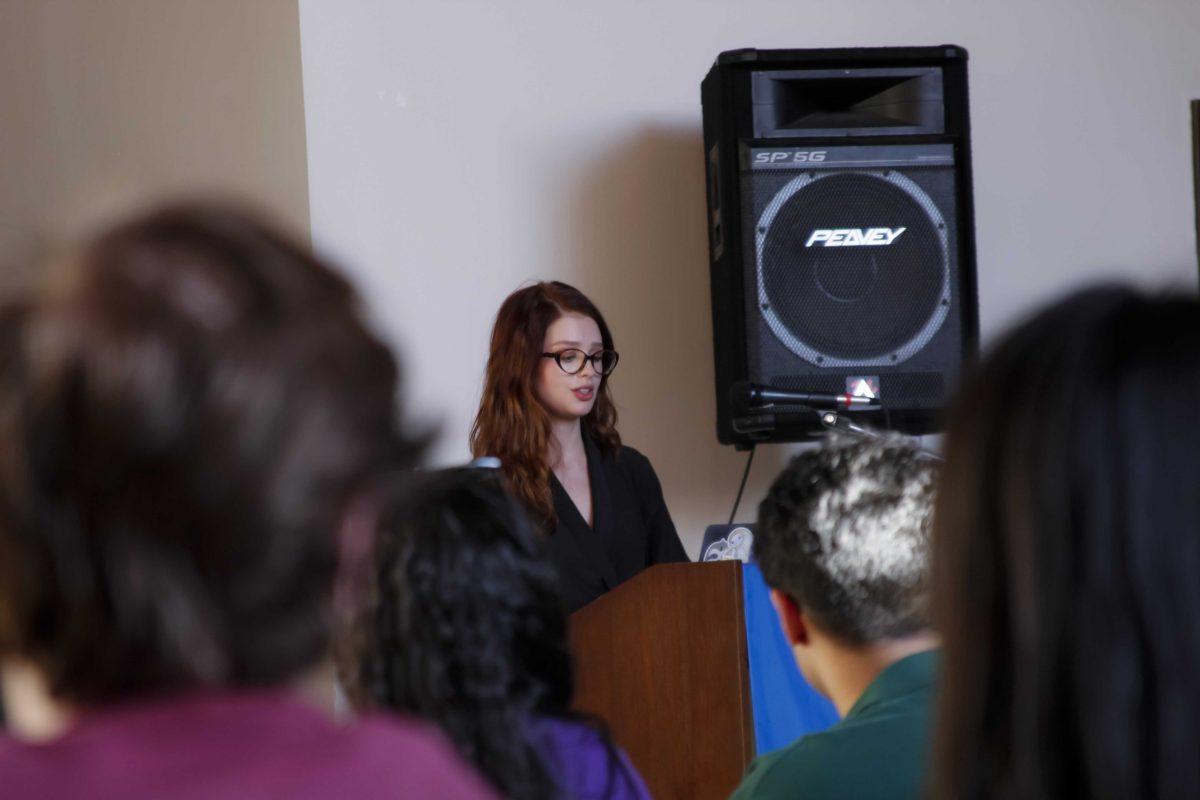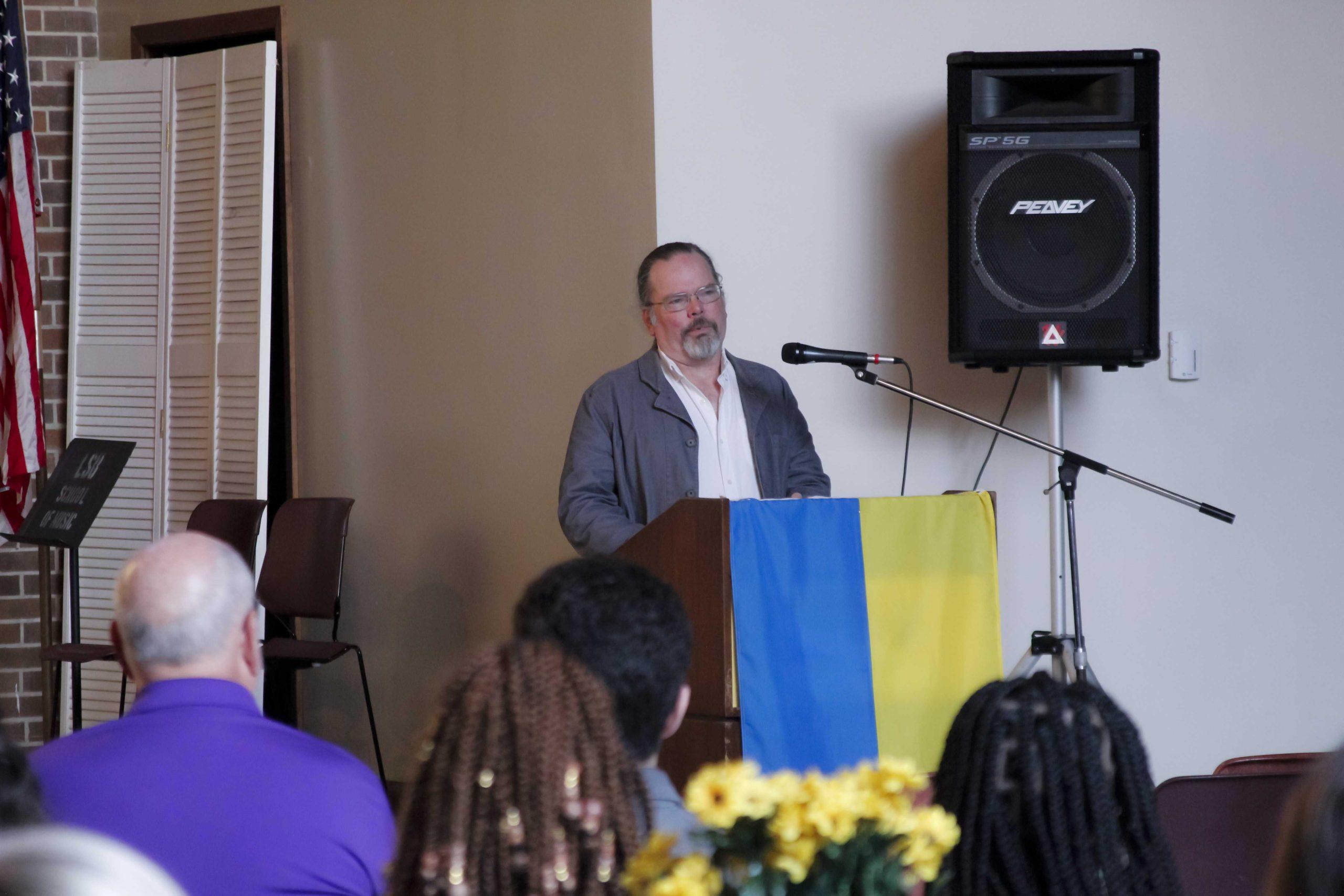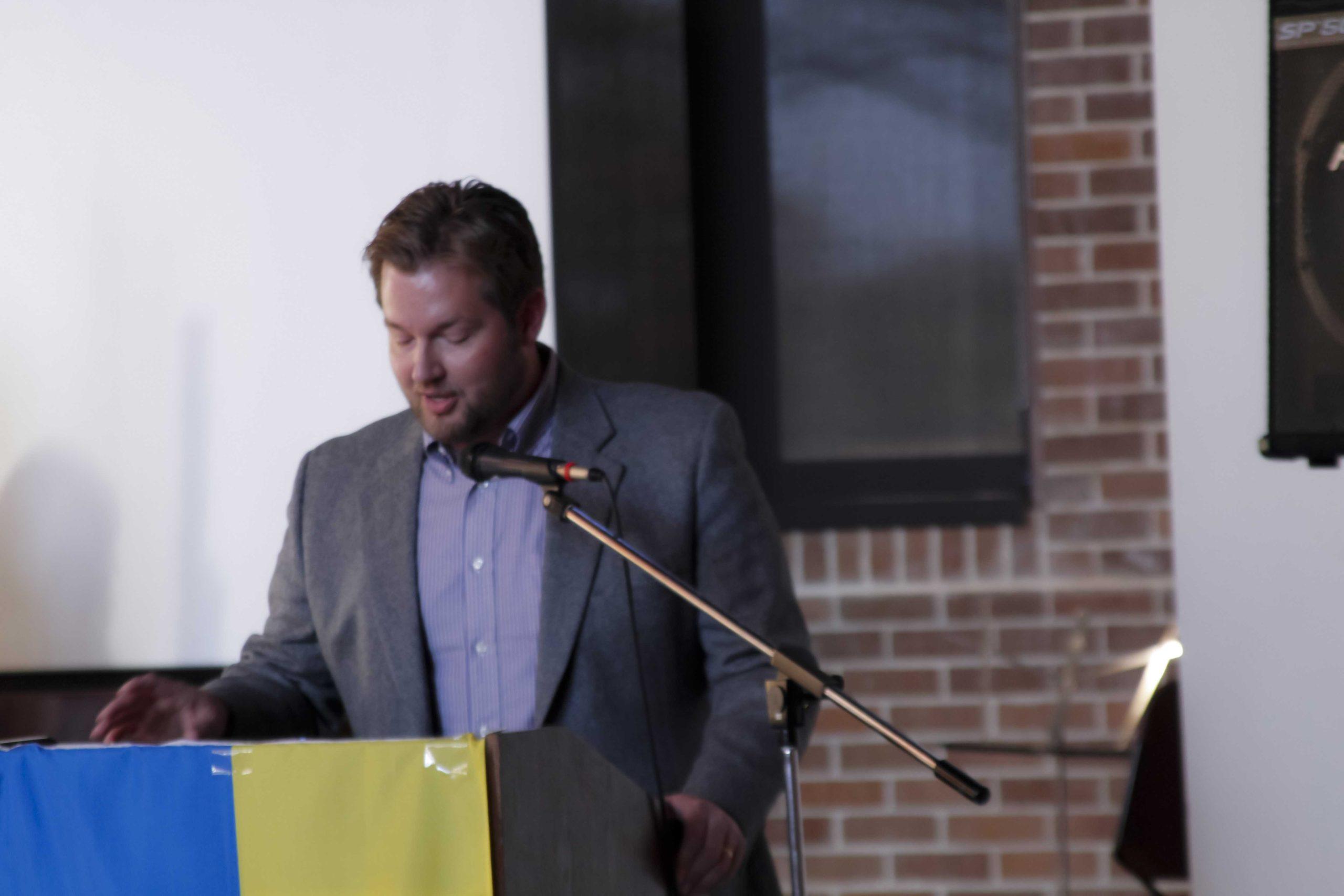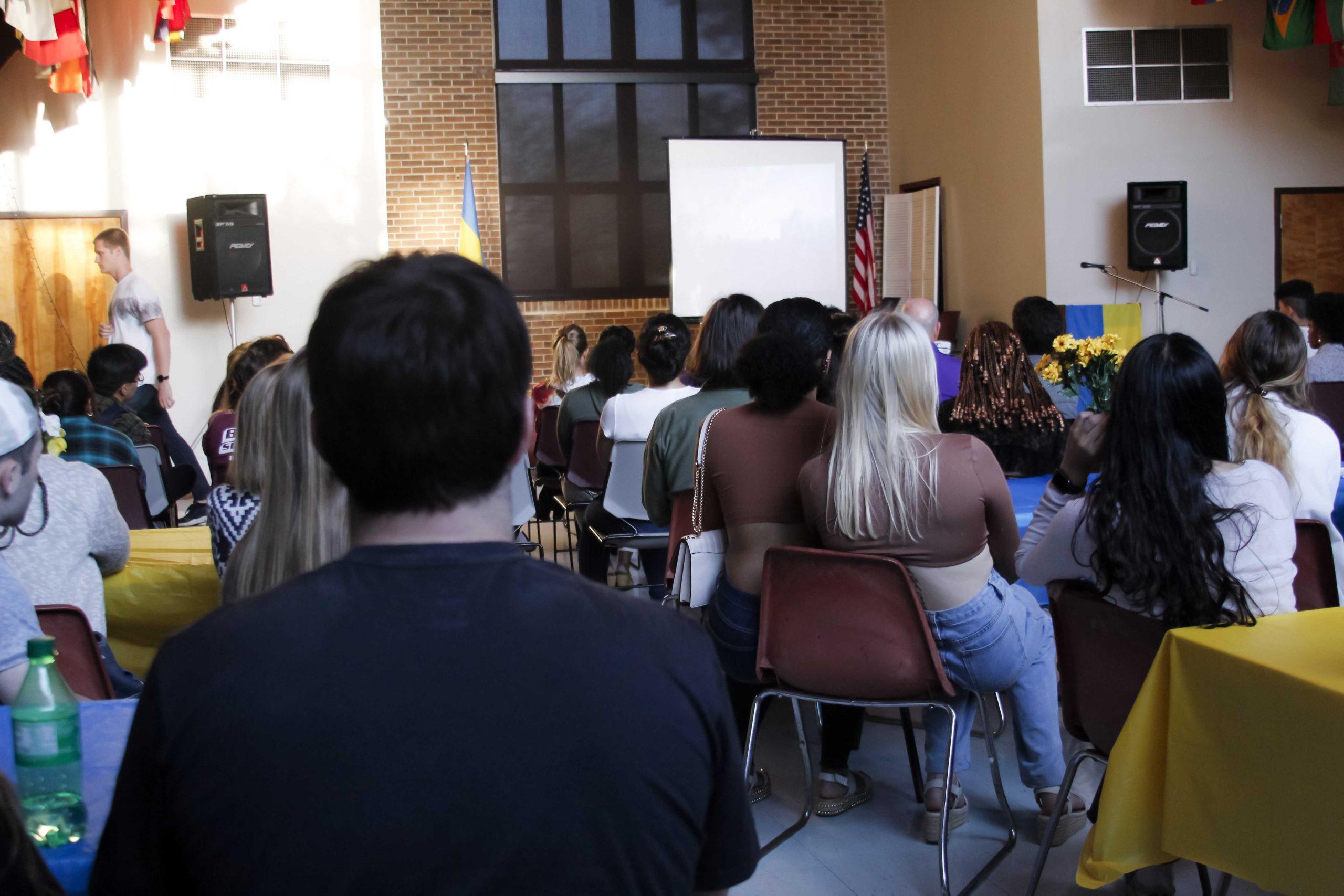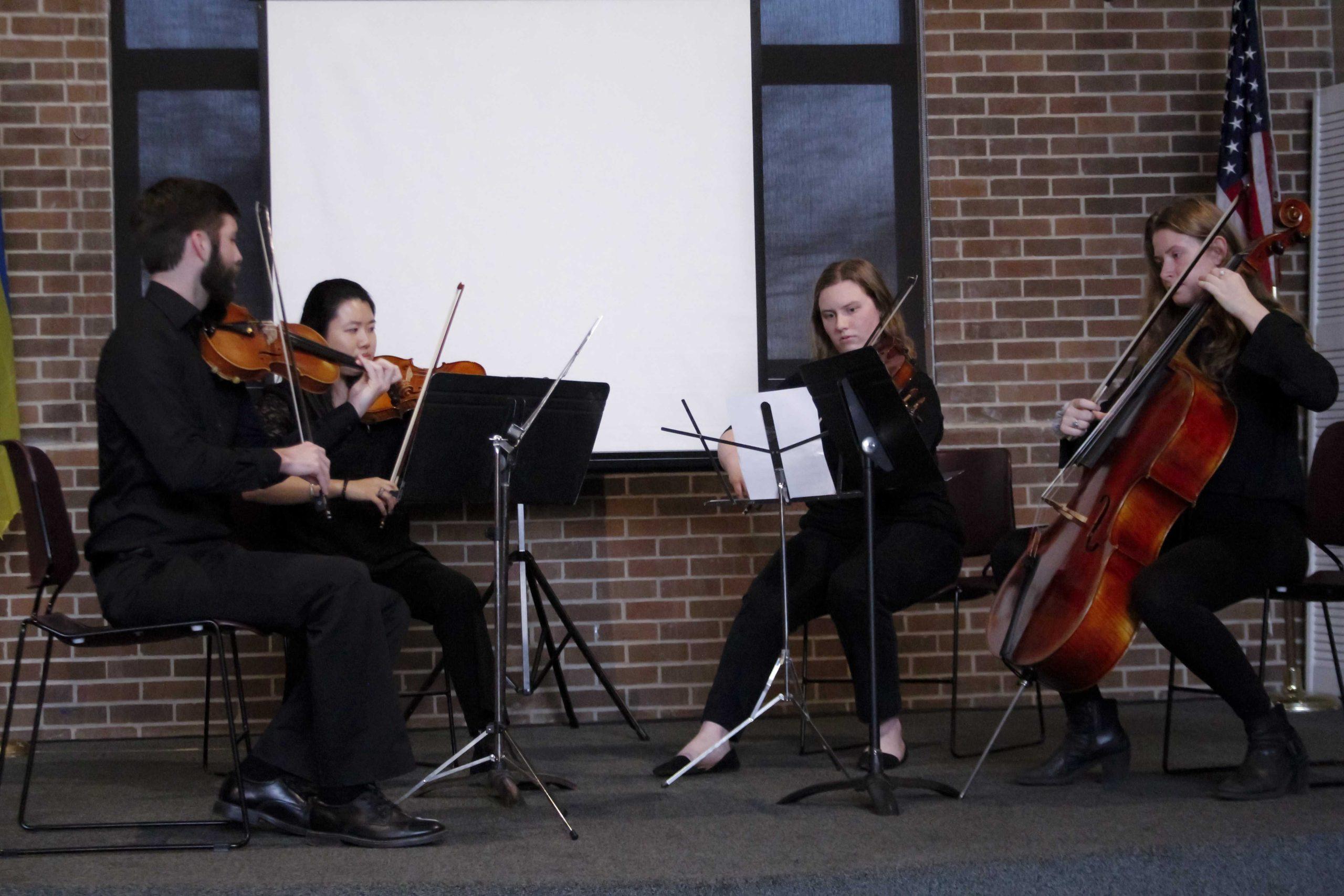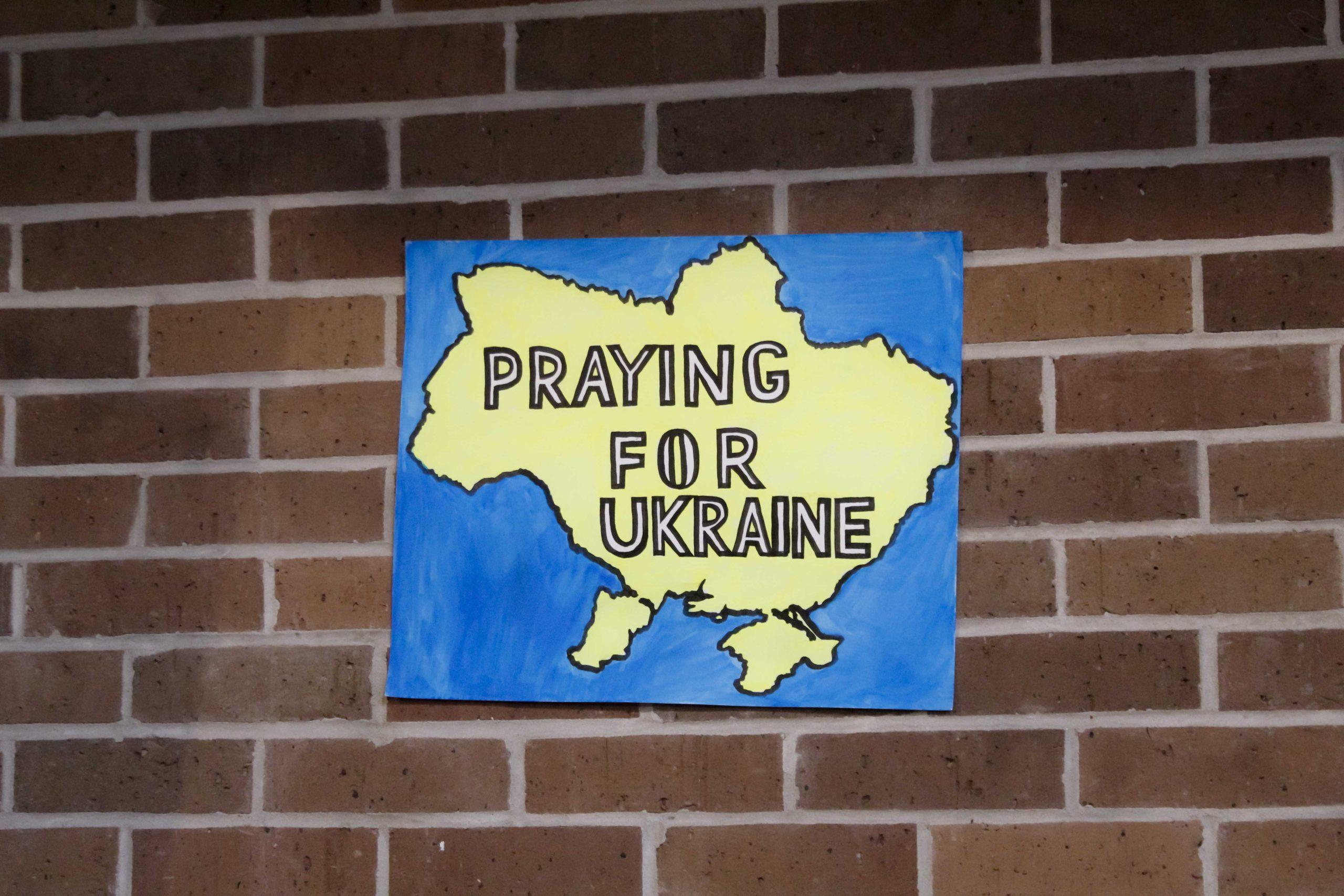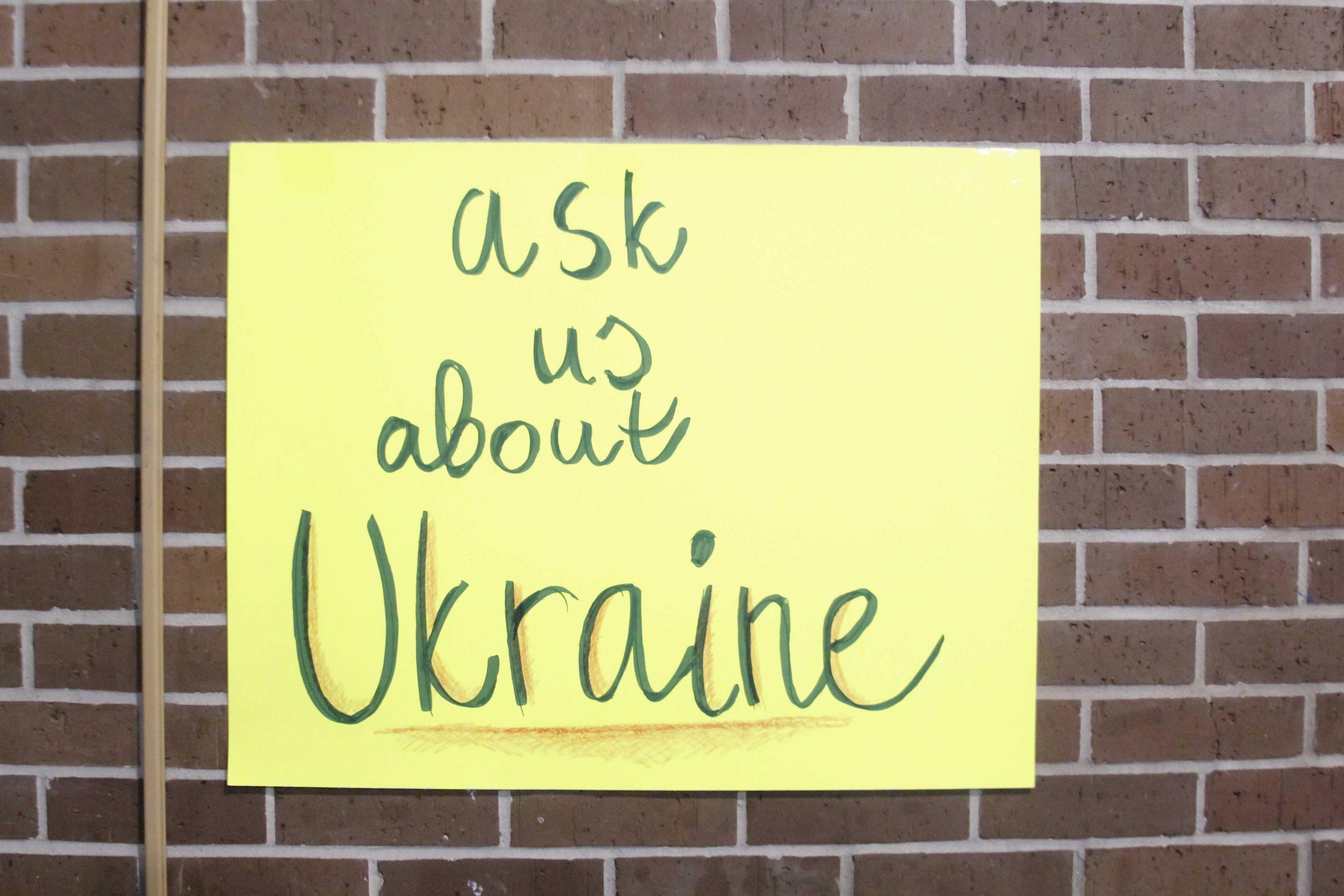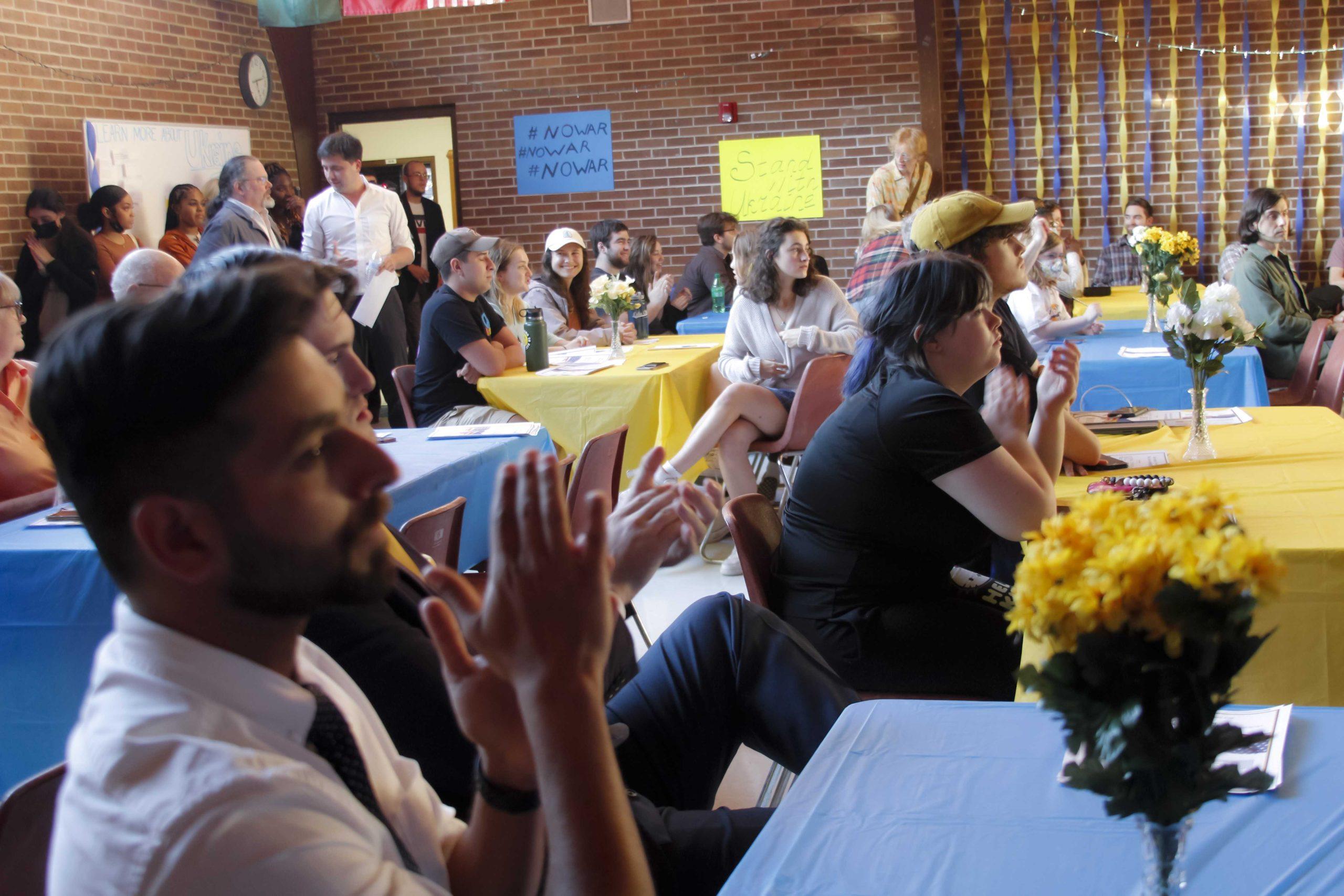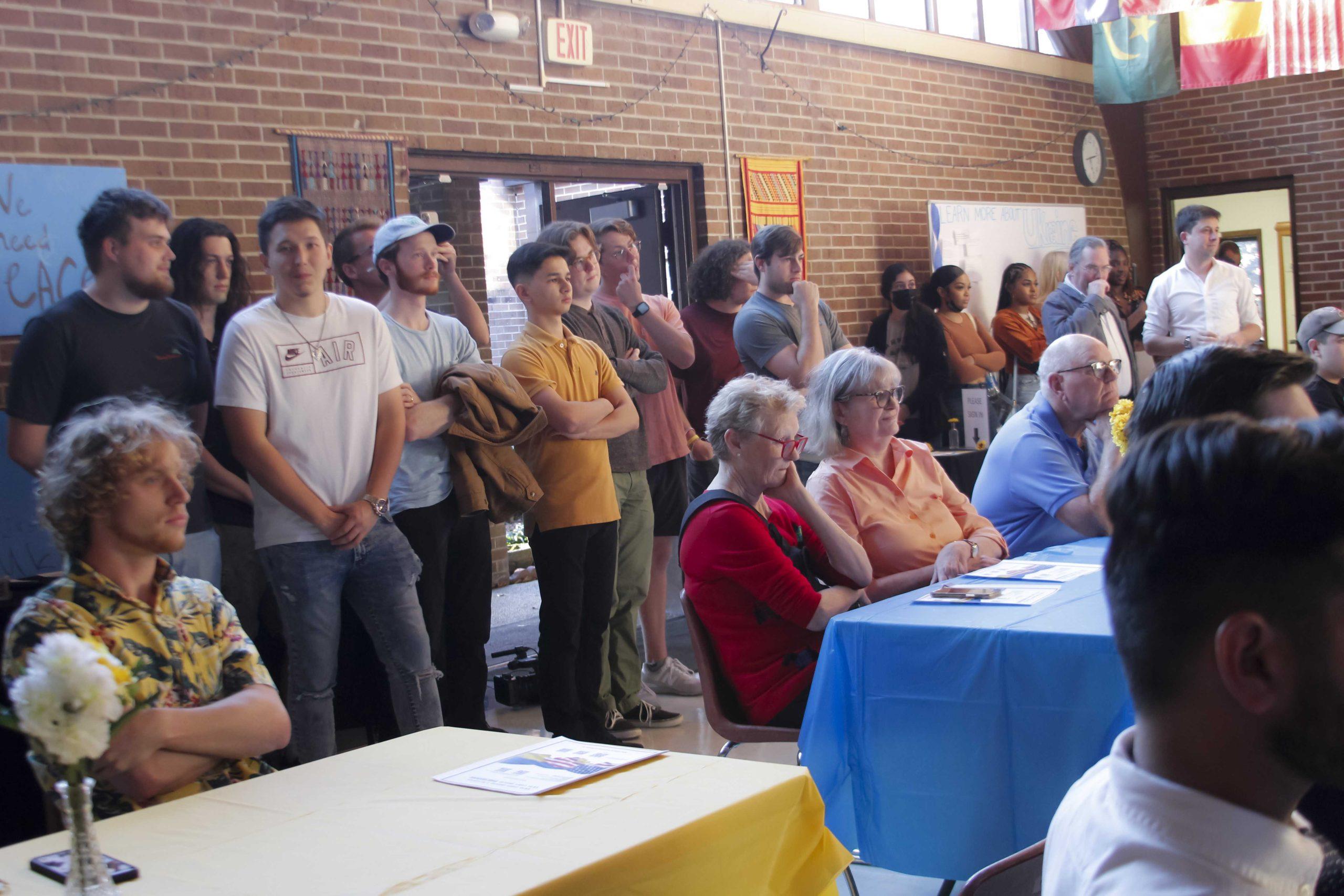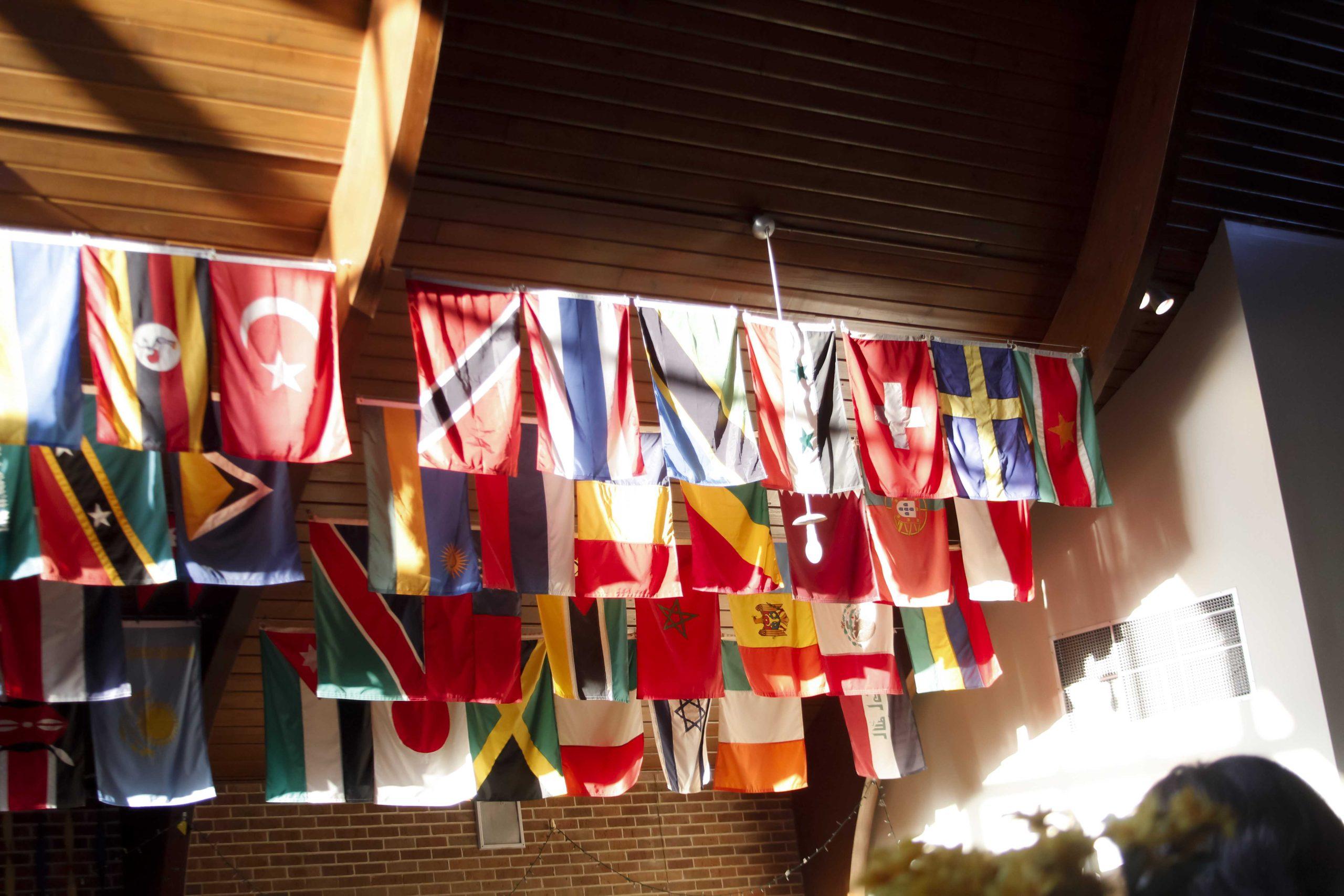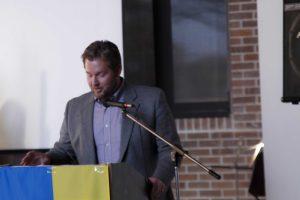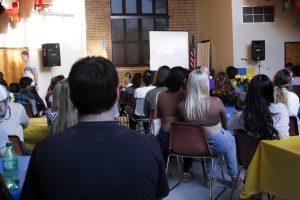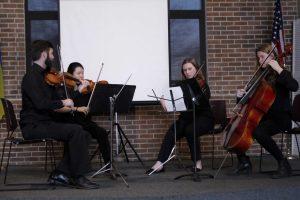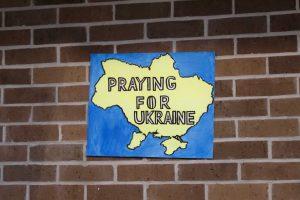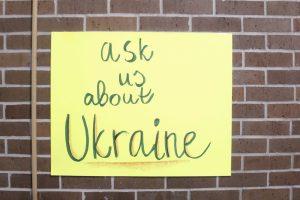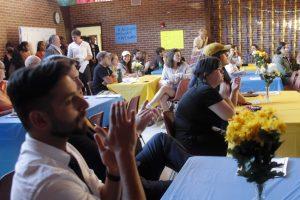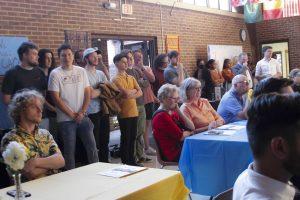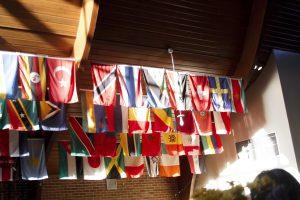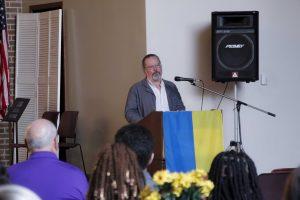LSU’s International Cultural Center hosted an event on Friday in support of Ukraine against the Russian invasion. Ukrainian students organized the event and hosted speakers, food and music and also introduced resources to support their home country, including ways to donate to the Ukrainian army.
“I’m optimistic because I’m Ukrainian and our people are united as never before and we will share this victory all together; just what price are we going to pay?” biochemistry freshman Daria Antonovskaya, head of the Ukrainian Student Association, asked.
Antonovskaya’s mother evacuated Ukraine after Russian troops began shelling the Zaporizhzhia nuclear plant in southeast Ukraine, the largest nuclear plant in Europe that experts worried could be in danger of a nuclear disaster much worse than the Chernobyl incident.
Antonovskaya said one of the most important things people can do to support Ukraine is to remain aware of the conflict and retain an intelligent view on the subject.
“For me it helps to stay active,” agricultural business senior Oleg Hrushetsky, who is also Ukrainian, said. “I feel like organizing this event has helped me to do something and to stay useful.”
Hrushetsky said his nieces have evacuated Ukraine, but the rest of his family has decided to stay.
Russia, in recent weeks, has restricted access to most social media websites for citizens as the few independent media outlets in the country ceased operations.
Russia also passed a censorship law that makes spreading “misinformation” about the war in Ukraine illegal.
“I’m one of the few Russians which have freedom, the freedom of speech, so I’m here to represent the majority of the Russian people which cannot go out into the streets and protest against this because they’ll be put in jail and beaten up,” ecological restoration freshman Kirill Rozhentsev said. “I’m using the opportunity to speak up for them and let everybody know that the majority of the Russian nation is against this war and that it is a dictatorship.”
LSU political science professor Daniel Tirone went over the various justifications Russian President Vladimir Putin has given for Russia’s attack on Ukraine.
Tirone said Putin claimed to want to protect the Russian-speaking diaspora of Ukraine from the government in Kyiv he claimed was populated by drug-addicts and Neo-Nazis. Tirone said that this argument has no basis in fact and isn’t worth addressing.
The second justification Tirone said Putin has put forward is that Russia doesn’t want its neighbors aligning themselves with NATO, its geopolitical rival.
“[Putin] has long desired to see the liberal, rules-based order which emerged after the end of the cold war and molded by western states and institutions overthrown and remade into a structure in which Russia rightly assumes its prominent place as a major power, rather than the kleptocratic petrostate dominated by a personalist authoritarian regime that it has evolved into,” Tirone said.
Tirone said that there are no winners in this war and that it is a humanitarian disaster. He said the citizens of Ukraine have been dragged into a horrendous situation which would have been unthinkable just weeks ago.
He also said that Russians will suffer from this as well, including young, conscripted soldiers sent to fight in this war and the everyday citizens who will bear the brunt of the economic strain brought about by sanctions. Nearly every country has condemned the invasion.
Tirone also said that Putin will lose from this as well, since he underestimated the Ukrainian military and its citizens’ ability to resist the invasion and brought about severe economic strain upon his people.
Political science professor Leonard Ray went over the possible impacts of this war in the European Union.
Ray discussed the history of the EU, and how it has been formed and molded through successive crisis since the end of World War II. He said that the current crisis the EU is facing will likely have wide-reaching consequences for it in the years to come, as previous crises have had as well.
He said there have already been major unprecedented changes happening across Europe in response to the war, specifically in Germany, which is cutting off Russian energy and increasing defense spending, something which would previously have been unthinkable for Germany to do.
Ray said he was doubtful that Ukraine will be accepted into the EU anytime soon, since the process for joining typically takes years. He doesn’t think the EU will speed up this process for Ukraine.
Ray said that there is a clause in the EU treaties for EU member states to defend each other, meaning that if Ukraine were to be accepted into the EU, they would be obligated to defend them.


